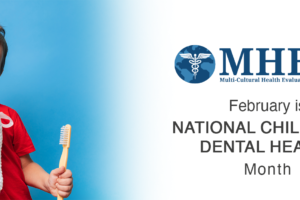
The organization calls for a commitment to legal compliance regarding the issue.
Erie, Pa. – MHEDS (Multi-Cultural Health Evaluation Delivery System), Northwest Pennsylvania’s one-stop healthcare services provider serving the multicultural community, emphasized an urgent need for enhanced attention to providing interpreter services in health settings for non-English speaking patients in the Erie community to ensure patients fully understand and consent to medical procedures. This call to action is supported by federal and state laws, including Title VI of the Civil Rights Act and the Americans with Disabilities Act, which mandate language access as a fundamental right in healthcare settings. Healthcare providers must ensure compliance with these laws to fulfill ethical obligations and equitable medical care to all patients, regardless of language barriers.
“We are spearheading this lane of advocacy because this is an issue of health equity and our unique role in the Erie community as a healthcare organization,” said Alivia Hiabach, CEO of MHEDS. The organization is the sole Pennsylvania Region 5 grantee for refugee health screens and services in Erie’s diverse community of immigrants and new Americans. Greater than 86% of MHEDS’ patient population in Erie is served in a language other than English, originating from all over the globe. “Feedback from our patients indicates a pressing need for improved language services across healthcare providers, a legal requirement that is essential for equitable and competent care.”
Immigrants, refugees, and migrant farmworkers are challenged not only by language barriers but are beset with issues that affect their ability to best advocate and act on their health needs, including literacy and cultural and socioeconomic factors. Additionally, some underrepresented communities face politicization and are challenged by negative representation and portrayal across all media platforms and outlets. These challenges precipitate a need for adherence to providing interpreter services – protected under federal and state law – by healthcare providers to ensure culturally competent care.
“We know providers in Erie are committed to providing quality care. This is just another opportunity for continuous quality improvement initiatives within healthcare facilities. Failure to provide appropriate language services can result in miscommunication, misdiagnosis, and inadequate patient care, which are against the fundamental principles of healthcare,” said Haibach. “We want to create a sustained dialogue among providers, funders, policy and decision makers regarding this issue as the impact of the health and wellbeing of the Erie community could be negatively impacted if not addressed.”
MHEDS actively assist its patients by providing interpretation for medical appointments and by offering translated documents for patients to review, along with referrals to other like-minded health and social services partner agencies to lower barriers to various social conditions and circumstances that influence a person’s health outcomes. Additionally, over 80% of MHEDS staff is hired from the communities they serve, creating a dynamic in which cultural component care is upheld.
“We will continue to actively engage the public with inperson opportunities and provide education regarding this issue through our digital channels ,” Haibach continued. “This is proof of our commitment to the health and vitality of the region as we work to alleviate the challenges of accessible healthcare.”
ABOUT MHEDS
Multi-Cultural Health Evaluation Delivery System’s (MHEDS) mission is to enable all who wish to achieve complete mental, physical, and social well-being by providing equitable, culturally sensitive, patient-centered health care, regardless of their ability to pay. MHEDS is Northwest PA’s one-stop healthcare service provider serving Erie’s multicultural community with holistic healthcare at two locations in Erie. As a Federally Qualified Health Center System Look-Alike, MHEDS meets rigorous compliance standards, ensuring its patients receive high-quality, equitable care. Nearly 86% of MHEDS patients speak a native language other than English, including Nepali, Arabic, Swahili, Ukrainian, Russian, or Spanish. MHEDS is a 2021 recipient of the Pennsylvania Office of Refugee Resettlement’s Excellence in Community Engagement Award for valuable contributions to serving the refugee population and operates two locations in Erie, PA.








